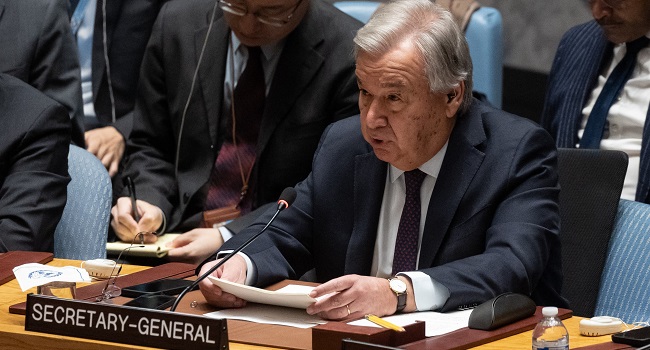
The UN Security Council has taken a significant step towards restoring stability in the Central African Republic (CAR) by lifting a long-standing territorial arms embargo that had been in place since 2013. This decision comes amid ongoing efforts to address the country’s persistent security challenges.
The resolution, passed unanimously by the Security Council on Tuesday, removes the embargo on the national military forces of CAR. This embargo had been imposed following the outbreak of civil war when the Seleka coalition overthrew President Francois Bozize. However, the new resolution also introduces a separate restriction, banning arms sales to “armed groups” within the country until July 2025.
“This diplomatic victory is a first step that restores dignity to the Central African Republic and its people,” said Sylvie Baipo-Temon, CAR’s Foreign Minister. She described the embargo as “just” in 2013 but “unjust” in the present context, highlighting the significant progress made since the conflict’s peak.
While the lifting of the embargo is seen as a positive move, the Security Council’s decision also maintains a ban on arms transfers to armed groups, reflecting ongoing concerns about security and stability in the region.
The Central African Republic has experienced intermittent violence from rebel factions and struggles with its resource wealth, which includes gold and diamonds. Although the conflict has lessened since 2018, the country continues to face challenges related to these issues.
Russian UN ambassador Vassily Nebenzia supported the resolution but suggested further action. “It would be appropriate to raise the question of abolishing the arms embargo on illegal armed groups,” Nebenzia said. “The problem of illegal armed groups can be solved only through sovereign efforts to stabilize and ensure security within national borders with the cooperation of neighboring countries.”
The resolution marks a notable shift in the international approach to CAR’s security situation, reflecting both progress and ongoing concerns.








